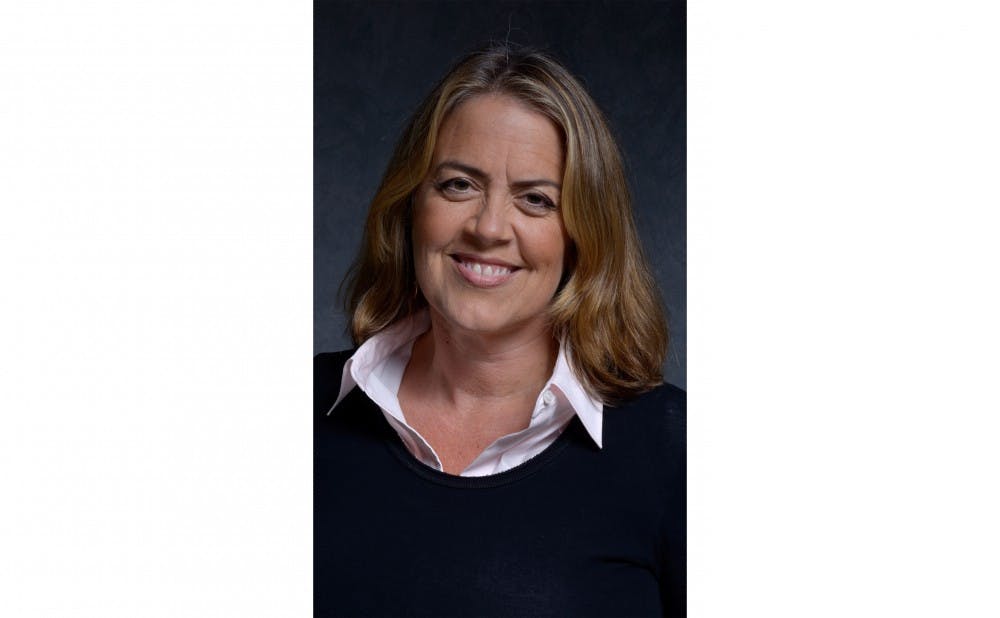Marina Zenovich is the director of an upcoming ESPN 30 for 30 documentary that examines the Duke lacrosse case and the national firestorm that the case generated. Named after a sound byte from David Evans—one of the three lacrosse players falsely accused of rape—”Fantastic Lies" will air Sunday, the 10-year anniversary of the off-campus party that triggered the chain of events.
Zenovich answered questions via email from The Chronicle’s Ryan Hoerger—who prescreened the film—about her experience revisiting the case and her impressions of what she found.
This story is part of our coverage of the 10th anniversary of the lacrosse case. Our other coverage can be found here.
The Chronicle: What first got you interested in the Duke lacrosse case and revisiting it in the form of a documentary?
Marina Zenovich: I was approached by the producer of “Man on Wire” to do the film. Of course I knew about the story but hadn't followed it to the end, so was interested in researching what had happened. I had no idea what I was getting into.
TC: At the beginning of the film, there's a description of the divide that existed between Duke and Durham, and how the community was ready for this type of firestorm. As you interviewed people around the community now 10 years removed from the party, did you get a sense of how that contrast has evolved? Is it any better? Is it worse?
MZ: You should ask a local. From an outsider's perspective, I think the divide was milked by the media in the firestorm of the case. I think most people in Durham want to forget what happened. The University officials certainly did.
TC: In the interviews with the lawyers for the players and the players' families, you really get a sense of the holes in the case laid out by [former Durham County district attorney Mike] Nifong. What most surprised you about the case itself?
MZ: Where do I begin? What surprised me the most was the extent of the prosecutorial misconduct as well as the misconduct by the police. These guys were really just having a field day and doing whatever they wanted to suit their own needs. It was almost as if they had decided what had happened in the case and then went searching for facts that would prove it, instead of the other way around.
TC: What were the primary emotions expressed by the players' families and other former players when you talked to them, and was there any hesitancy on their part about revisiting something that caused so much pain?
MZ: Hesitation? How about flat out Nos. It took months to get them to talk, and even when they agreed, it was incredibly hard for them to reopen old wounds. This case was incredibly difficult for everyone involved, especially the families of the indicted boys.
TC: In one part of the documentary, there's an insinuation that maybe the way everything was handled by the University administration doesn't happen if it's a different sport implicated in the controversy, like men's basketball. Could you elaborate on that a bit?
MZ: Draw your own conclusions.
TC: The end of the film reveals that [accuser] Crystal Mangum consented to an interview, but that prison officials denied the request [Mangum is now serving time for second-degree murder of her ex-boyfriend]. What happened there?
MZ: I guess she had done press in the past and it caused problems in the prison. For this reason, they felt it wasn't a good idea.
TC: In general, there were so many key people and entities who declined to be interviewed for the film. What were the challenges in trying to revisit the case without their cooperation, and how did you get around them?
MZ: I kind of specialize in making films about people who aren't in them, so that is never a huge problem for me. Or so I thought at the time! I would have liked to talk to President [Richard Brodhead], for example, because I think in the end it would have been beneficial to the University to address how they handled the matter and what they learned from it. They didn't think it was necessary.
TC: How do you think the lacrosse case affected public perception of Duke as a university and the public perception of lacrosse as a national sport? Ten years removed from the party, how does the case still affect public perception of Duke lacrosse specifically?
MZ: Like anything, it depends on who you talk to. I am an outsider, so I don't want to proclaim to know anything more than what I learned making the film which I put into the film.
Get The Chronicle straight to your inbox
Sign up for our weekly newsletter. Cancel at any time.

